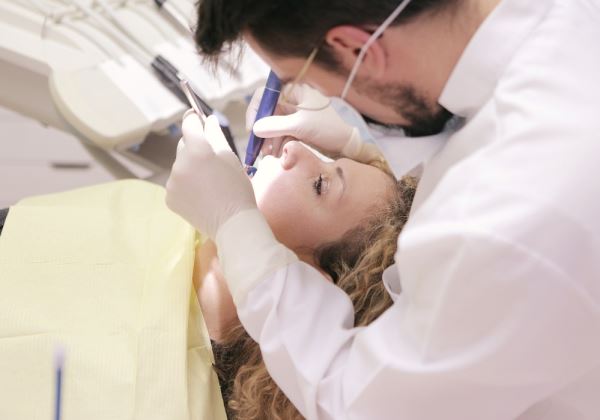Our Blog
Bad teeth and dentures increase the risk of cancer
Chronic mechanical irritation or trauma caused by poorly placed, misaligned prostheses or teeth in poor condition "is significantly associated with oral cancer, and the risk is greater when the person consumes tobacco or alcohol, even in moderate amounts," warns an investigation by the National University of Cordoba (UNC).
A team of researchers from the UNC School of Dentistry analyzed data collected over a decade to fill a gap in the literature on this field, and the results conclude, through "empirical demonstration", that "chronic mechanical irritation potentiates and, in some cases, doubles the risk of oral cancer.”
The investigation of the chair of Stomatology, which was published this Thursday by the UNCiencia website, maintains that the result acquires special relevance, because until now it was known that the intake of alcohol and tobacco favored the development of oral cancer, but it had never been proven that chronic mechanical irritation potentiates the action of these factors.
In this sense, it specifies that the possibilities of cancer are enhanced by chronic mechanical irritation or trauma, caused by poorly placed prostheses, misaligned or teeth in poor condition, because "they are scraping or hurting the mouth for months or years."
"The risk is greater when the person consumes tobacco or alcohol, even in moderate amounts," he clarifies.
The director of the Oral Cancer Department of the World Health Organization (WHO) participated in the study ; academics from the German Hospital of Buenos Aires ; from the National Cancer Research Institute in Taiwan ; the School of Dentistry and Craniofacial Sciences at King's College London.
The data
The research worked on data collected between 2009 and 2019, with a sampling of two groups of 106 cases each: the first made up of patients with oral cancer, and the second of healthy people (control group).
In all cases, they were over 18 years old –with an average age of 63 years–, identified as male or female, who were treated at the UNC School of Dentistry or at the Oral Medicine Service of the German Hospital of Buenos Aires.
Among some of the data, the research determined that tobacco consumption was reported in 44.3% of cancer patients and in 48.1% of the control group (healthy people).
Alcohol, meanwhile, in 50% of the cases that are in the first group and in 34% of those that are in the second.
In the group of people with a cancer diagnosis, 73.6% showed evidence of chronic mechanical irritation.
Ill-fitting dentures and broken teeth that scrape the tongue are the most common traumas. In the control group, meanwhile, only 32.1% presented this condition.
Likewise, it details that it was also determined that the combination of chronic mechanical irritation and alcohol increases the risk of developing the disease by 53%.
“Our study showed that chronic irritation is significantly associated with oral cancer. The data also showed that a higher risk correlates with the interaction not only between tobacco and alcohol, but also between these two factors and oral trauma”, explained Eduardo Piemonte, director of the study.
“This means that the factors make synergy. It is not necessary to smoke excessively to develop oral cancer. Doing it moderately with a poor oral condition already enables that possibility. In contrast, good oral health could reduce the risk of contracting this disease, "added the scientist.
One fact that caught the attention of the research team was that chronic irritation also served as a risk factor, even in the absence of tobacco and alcohol. But this does not mean that it is carcinogenic by itself.

